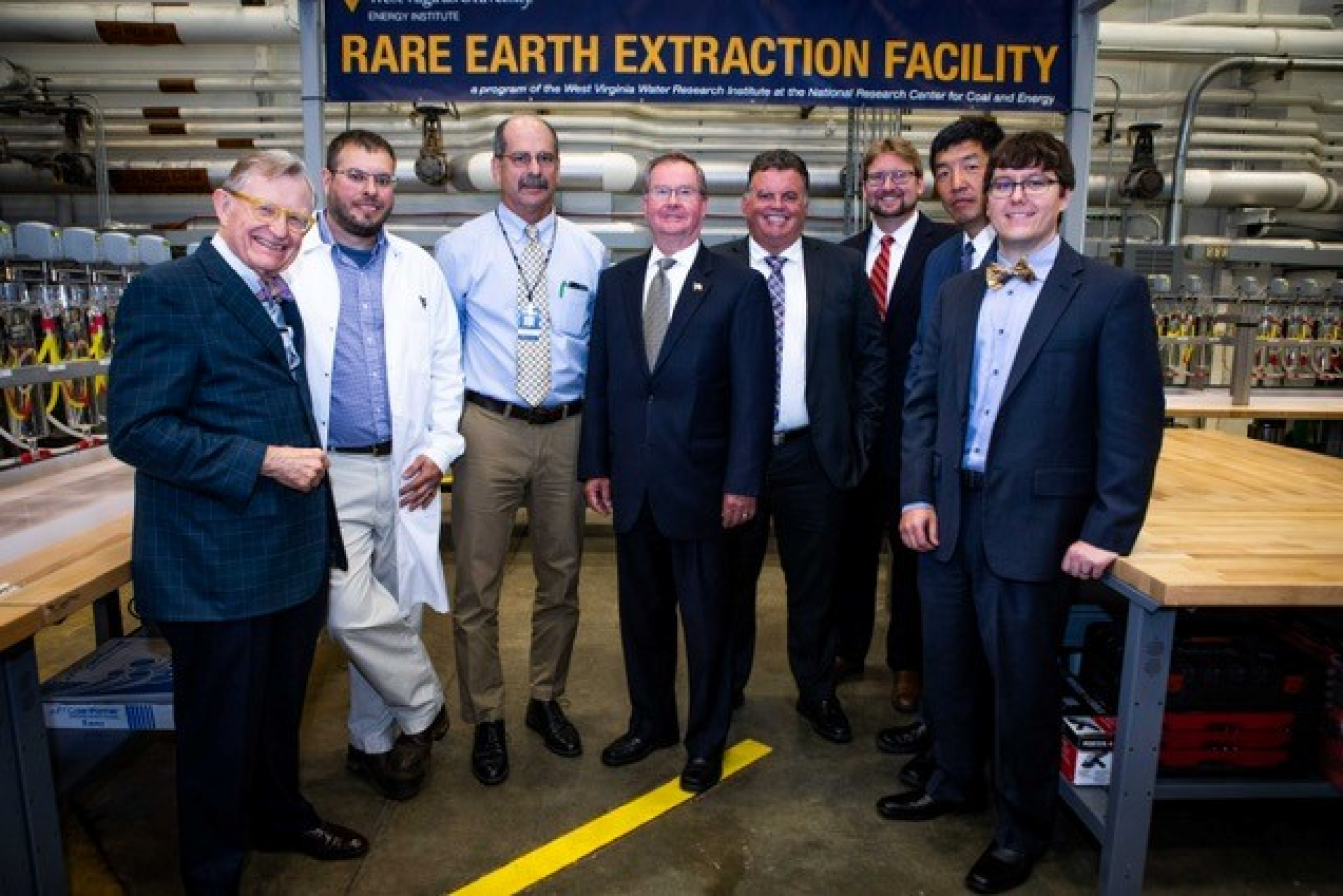ASFE Steven Winberg delivered remarks at the commissioning ceremony for West Virginia University’s Rare Earth Extraction Facility.
Office of Fossil Energy and Carbon Management
July 18, 2018
ASFE Winberg (center) celebrates the commissioning of the WVU Rare Earth Extraction Facility.
Today, Assistant Secretary for Fossil Energy (ASFE) Steven Winberg delivered remarks at the commissioning ceremony for West Virginia University’s (WVU) Rare Earth Extraction Facility. The new facility will conduct research and development (R&D) on technologies used to extract rare earth elements (REEs) from coal and coal by-products, particularly in acid mine drainage produced from mining activities.
As chemical elements found within the Earth’s crusts, REEs contain special chemical properties that make them ideal for use in many common technologies—including televisions, computers, X-ray machines, smart phones, and more.
Because of the difficulty in recovering these elements, the United States currently relies heavily on other nations to obtain them. Developing a sustainable domestic REE supply, however, would have several important benefits. Specifically, it would increase our national security; stimulate the nation’s economic growth; secure our energy independence by decreasing our reliance on other nations for REEs; and it could bring jobs and industrial growth to U.S. coal country.
R&D completed at the WVU Rare Earth Extraction Facility will support the efforts of the Office of Fossil Energy’s REE program to develop a national REE supply from available U.S. resources, including coal and coal by-products.
During the commissioning ceremony, ASFE Winberg emphasized the importance of collaboration, like this one, between universities and the national laboratories to developing advanced technologies. He also noted the potential benefits that REE development could bring to the region.
“By developing a valuable domestic source of REEs right here in West Virginia, we not only could meet our demand for rare earths, we could also add new value streams to coal. And we see the potential to bring new industries—and new jobs—to West Virginia and other parts of coal country,” ASFE Winberg said. “And with this facility, we’ll hopefully move even further down the road toward these goals,” he said.

